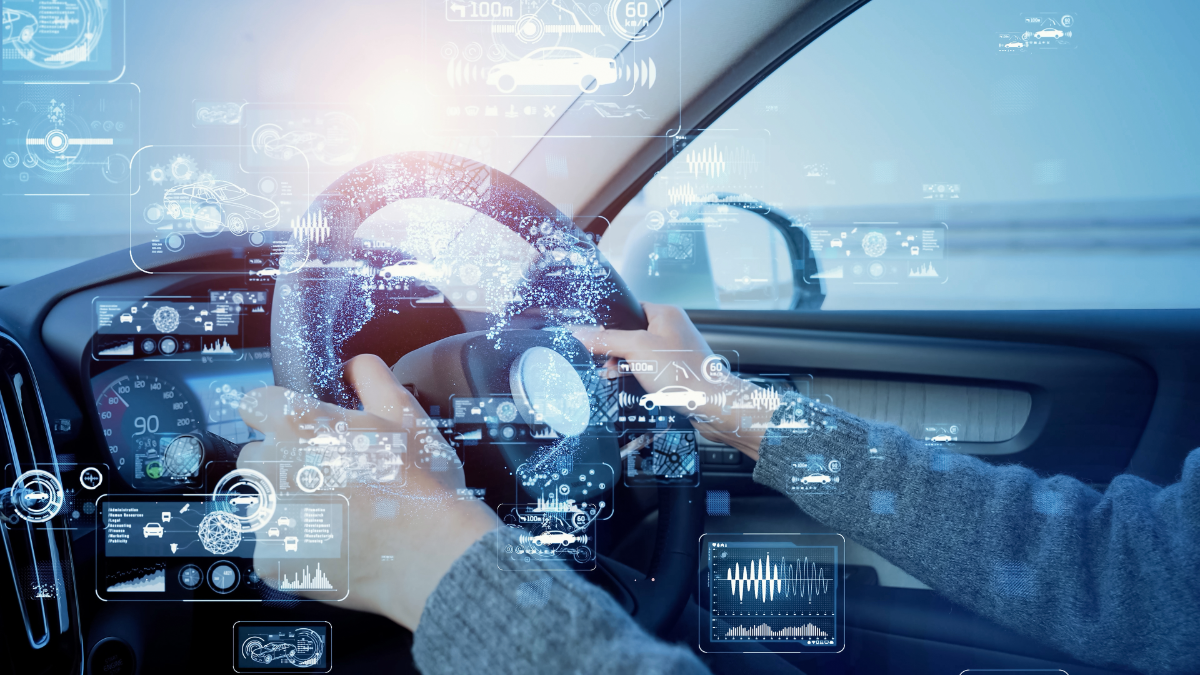Why Data Privacy in Connected Cars Must Be a Priority?
The advent of connected cars is transforming modern mobility, reshaping how we commute and interact with vehicles.
These automobiles, equipped with sophisticated sensors and communication technologies, collect vast amounts of valuable data about drivers, passengers, and their surroundings.
From location tracking and driving habits to personal details like health information derived from integrated infotainment systems and connected devices, connected cars serve as powerful data hubs.
However, as cars morph into "computers on wheels," critical questions arise: Who owns and controls this data? How can we ensure it is handled responsibly?
Diogo Pinto, Policy Director of the FIA European Bureau, highlights this issue and emphasizes the need to address these concerns proactively. While data collection has undeniable potential to improve road safety, driving efficiency, and overall user experience, it also introduces significant privacy risks.
The automotive industry's ability to collect, analyze, and share this data often outpaces the regulatory frameworks designed to protect consumers. Many vehicle owners remain unaware of how their data is used or shared—let alone how third parties may access it without their explicit consent.
Understanding the Challenge
At the FIA European Bureau, driving advocacy for the rights of vehicle owners and drivers is a priority. Addressing the growing concerns surrounding data privacy in the context of connected cars is a critical focus area.
To tackle these challenges, the bureau has joined forces with Privacy4Cars to organize a landmark event titled "Driving Data Rights: Enhancing Privacy and Control in Connected Cars". Scheduled for 19 November in Brussels, the event aims to convene policymakers, industry leaders, and civil society representatives to explore the gaps between existing regulations and industry practices.
The ultimate goal is to develop actionable approaches that empower consumers to regain control over their data while ensuring stronger protection in a rapidly evolving digital space.
The Legislative Disconnect
Europe's General Data Protection Regulation (GDPR) establishes a global benchmark for privacy protection, yet its integration within the automotive sector faces significant hurdles.
The ecosystem that connects automotive manufacturers, insurers, fleet managers, service providers, and other stakeholders often operates on uneven terms.
A troubling imbalance of power exists: while drivers are the primary source of data generated by vehicles, they are frequently excluded from meaningful access to or control over this information.
A recent study conducted by Privacy4Cars highlights alarming trends in the automotive sector. According to the study, many companies involved in utilizing connected car data fail to meet basic GDPR compliance requirements.
Key areas such as data transparency, security measures, and obtaining informed consent remain inadequate in many instances, leaving drivers particularly vulnerable to data misuse and third-party exploitation. These findings emphasize the need for urgent reform to make data privacy a non-negotiable priority.
Balancing Innovation and Privacy
Connected car data holds immense promise for improving mobility. Whether enhancing road safety through advanced driver-assistance systems, enabling predictive maintenance, or enriching the driving experience, data-driven innovations are transforming the automotive sector.
However, this transformation cannot come at the expense of individual privacy rights.
As the industry continues to push the boundaries of automotive technology, regulators, industry stakeholders, and privacy advocates must strike the right balance between innovation and maintaining strong privacy protections.
Robust enforcement of existing regulations, complemented by the creation of new, tailored frameworks that address the specific challenges posed by connected vehicles, is critical.
Drivers should have meaningful control over how their data is used and shared and confidence that their privacy is safeguarded throughout the process.
Shaping the Future of Data Privacy
The FIA European Bureau and Privacy4Cars’ upcoming event on 19 November offers a unique platform to facilitate comprehensive dialogue around these issues.
Representatives from key institutions, including the European Commission, alongside leading automotive industry experts and privacy advocates, will discuss how the current regulatory landscape can be improved to better protect consumers in this age of hyperconnectivity.
The conference agenda features key presentations, including cutting-edge research from Privacy4Cars on troubling privacy practices in the automotive sector. Panel discussions will include insights from industry leaders and privacy experts, alongside case studies showcasing real-world examples of data misuse.
These examples will address common scenarios, such as third-party data access and inadequate consent mechanisms, demonstrating why action is urgently needed to prevent harm to consumers.
The ultimate goal of the event is to produce practical recommendations for policymakers and industry leaders in order to shape a holistic approach to data privacy in connected cars.
By amplifying the voices of drivers and car owners, the FIA European Bureau seeks to ensure that individuals—a key stakeholder group often overshadowed in discussions—are central to privacy debates shaping the future of mobility.
Building Trust Through Transparency
The future of mobility is undeniably tied to connected cars. However, this future must be built on the pillars of trust, transparency, and consumer empowerment.
Vehicle manufacturers, technology providers, regulators, and privacy experts all have roles to play in fostering a system where data use is ethical, secure, and aligned with consumer interests.
One of the most effective ways to build trust is by returning control over personal data to individuals. Through legislation that mandates transparency and consent, coupled with innovative technologies that make privacy controls more accessible, we can build an ecosystem that works for drivers and society at large.
The FIA European Bureau remains committed to working alongside all stakeholders to create a safer, more equitable digital landscape for connected cars.
Privacy and data protection must be front and center in conversations about innovation—not addressed as an afterthought. As digitalization reshapes the automotive industry, ensuring that drivers retain control over their personal data will be an indispensable component of this transformation.



Post a Comment